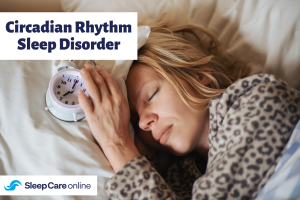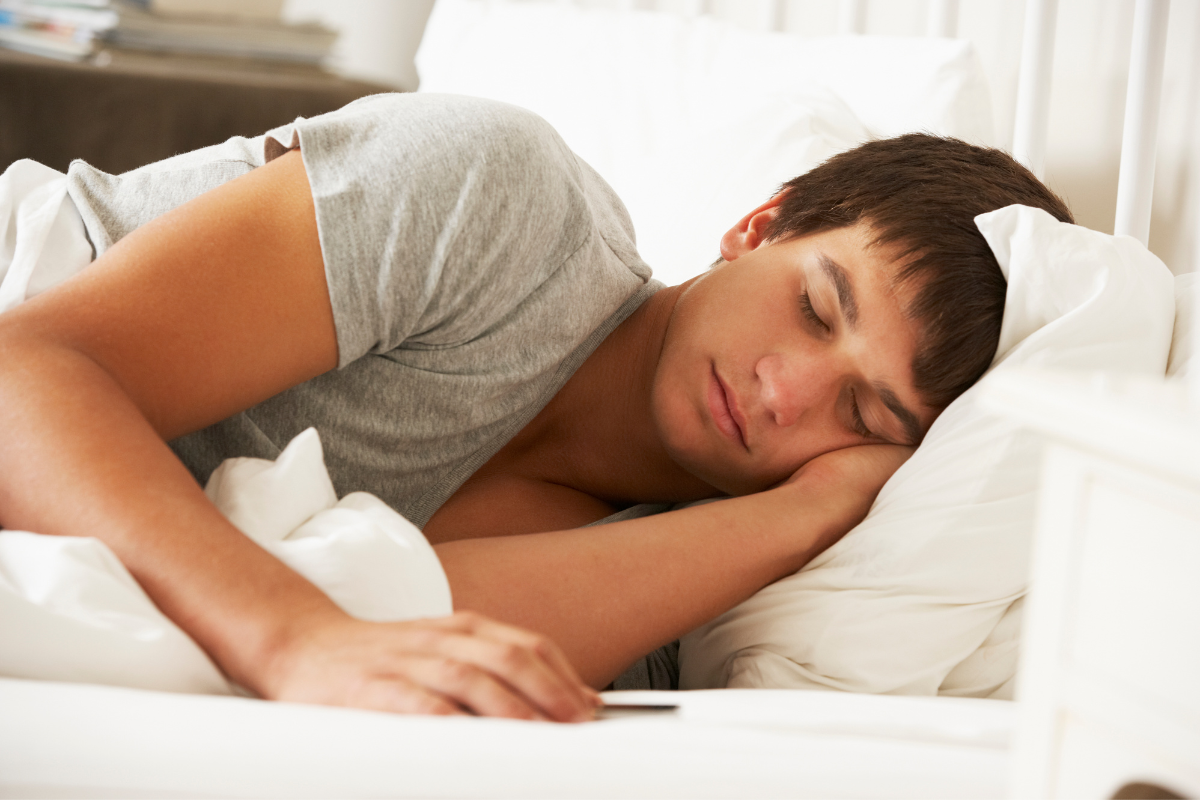What Is A Circadian Rhythm Sleep Disorder?
Circadian rhythm sleep disorder disrupts your body’s natural internal clock. This disruption leaves your sleep cycle out of sync with your environment and may leave you sleep-deprived.
Types Of Circadian Rhythm Sleep Disorder
Delayed and Advanced Sleep-Wake Phase Disorders
These specific circadian rhythm disorders make it difficult for people to stay awake at night or to wake early in the morning refreshed. A person with Advanced Sleep-Wake will struggle to stay awake into the evening. A person with Delayed Sleep-Wake can stay up at night but may have difficulty getting out of bed in the morning.
Irregular Sleep-Wake Rhythm Disorder
People with irregular sleep-wake rhythm disorder have intermittent bouts of sleep. Often, they will sleep for a short period, then be awake for a short period, but never experience a full night of continuous sleep.
Non-24-Hour Sleep-Wake Rhythm Disorder
People with non-24-hour sleep-wake rhythm disorder have an inconsistent sleep schedule. They never go to bed at the same time every night. Sleep and wake times become earlier, or later so no consistent pattern of sleep can be achieved.
Shift Work Disorder
Shift work disorder is caused by individuals who work erratic hours. Often medical and night staff who must change their work schedules will find it difficult to commit to a specific sleep schedule. Often, they experience insomnia and sleeplessness or grogginess during the day.
Jet Lag
Jet lag is a short-term sleep disorder due to traveling by air through different time zones. The circadian rhythm of the body becomes out of sync due to a change in standard time.
Other Circadian Rhythm Sleep Disorders
Other circadian rhythm sleep disorders may be due to erratic sleep schedules, frequent travel, disabilities, or health issues that interrupt natural sleep.
Causes Of Circadian Rhythm Sleep Disorder
Circadian rhythm sleep disorder is caused by erratic changes in sleep patterns. The sleep disorder may be caused by:
- Jet lag from frequently traveling across time zones
- Changes in work shift schedules
- Erratic sleep schedules-when you go to bed and when you wake up
- Blindness
- Brain damage
- Old age
Risk Groups Of Circadian Rhythm Sleep Disorder
Those most likely to experience circadian rhythm sleep disorder include:
- Older people, especially those with dementia
- Those who travel frequently by air across multiple time zones
- People who have erratic work shift schedules
- Blind people
- Teens and young adults
Circadian Rhythm Sleep Disorder Symptoms
People with circadian rhythm sleep disorder often exhibit telltale symptoms including:
- Regular insomnia
- Difficulty waking up in the morning
- Daytime drowsiness
- Depression
- Cognitive issues relating to performance at work or school
- Difficulty with relationships
Circadian Rhythm Sleep Disorder – Diagnosis
For doctors, diagnosing circadian rhythm sleep disorder can be difficult as many sleep disorders reveal similar symptoms.
- A doctor may question you about your work history to see if work shift disorder may be affecting your sleep.
- They may inquire into your sleep patterns
- They may have you engage in a sleep study to accurately test you for the sleep disorder
How To Cure Circadian Rhythm Sleep Disorder?
The good news is that circadian rhythm sleep disorder can be successfully treated once diagnosed. You may be required to follow a more regimented sleep schedule to keep your sleep health on track. The use of light therapy can help recalibrate your circadian cycle. Medications may also be helpful in adjusting your sleep schedule to normalize your internal clock.
Conclusion
If you experience difficulty with your sleep, then it is important to get the proper diagnosis to see if you have a sleep disorder. Treatment and lifestyle changes can help you reset your internal clock and restore your sleep and your health.





